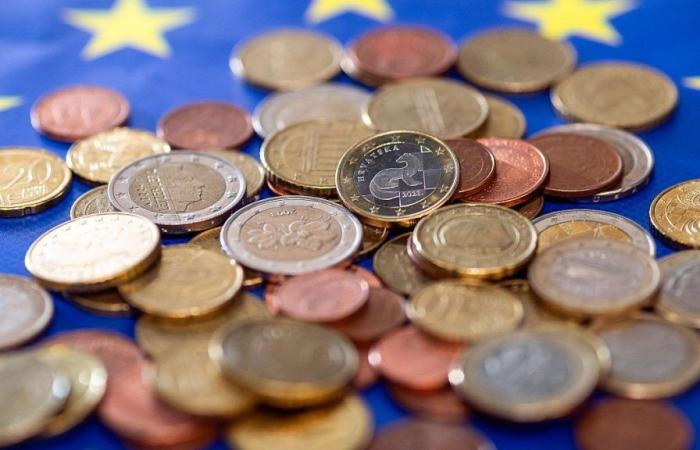Bulgaria cannot join the euro zone due to its high level of inflation, the European Central Bank said in a report published on Wednesday.
Bulgaria will not become the 21st member of the euro zone, at least not in the short term. A decision made public by the European Central Bank, via a report published Wednesday June 26.
The move is expected to disappoint Sofia, despite public concerns that it could exacerbate rising prices in the Balkan state.
“Limited progress has been made by non-euro area Member States of the European Union towards economic convergence with the euro area since 2022“, the ECB said in a press release.
Prices in Bulgaria are growing at an annual rate of 5.1%, 1.8 percentage points higher than they would need to be to join the monetary union, the ECB saidwho however added that inflation should “gradually decrease over the coming months” as supply bottlenecks ease.
Countries do not automatically join the euro when they become members of the European Union, but they are expected to do so once they converge on legal and economic standards, including stable exchange rates and financial healthy public.
The only exceptions are Sweden and Denmark, which have negotiated political and legal exemptions and retain their national currencies.
Unstable political context
On June 4, according to the Bulgarian news agency BTA, Deputy Finance Minister Metodi Metodiev expressed hope that Bulgaria could join the euro in mid-2025, as more lenient economic conditions would allow him to apply an additional contribution to the EU.
But days later, the country was plunged into political turmoil following national and European elections, which saw a strong rise of the far right.
The pro-Russian ultranationalist Vazrazhdane party won around 14% of the vote and three of the country’s 17 MEPs, after saying the euro would destroy the Bulgarian economy.
The GERB party, led by former Prime Minister Boyko Borissov, will now need at least two partners to form a governing coalition, and abandoning the lev may not allow it to win votes.
According to a Eurobarometer poll, only 49% of Bulgarian citizens are in favor of joining the euro, and 64% of the population believe that this will lead to a further rise in prices.
Inflation fears
After the pandemic, inflation in some EU countries rose as high as 17%, as the war in Ukraine pushed up energy and food prices.
The ECB, responsible for keeping inflation around 2%, monitors how inflation in euro candidate countries compares to that of the best performing EU countries, namely, last year, the Denmark, Belgium and the Netherlands.
The other EU members, namely Hungary, Poland, Romania and Czechoslovakia, have not aligned their legislation with European standards and have not joined the exchange rate mechanism, which allows avoid sudden fluctuations in the euro.
At the beginning of June, Romania was taken to task by Brussels because it is expected to have the highest budget deficit in the EU, at 7% in 2025.
The move follows years of warnings for Bucharest to balance its books and reform public sector taxes and salaries.
Hungary, led by Viktor Orbán, has long been eurosceptic, and in Warsaw, ministers remain cautious about abandoning the zloty, despite warmer relations with Brussels since Prime Minister Donald Tusk took office.
Subscribe to stay informed about the latest EU policy developments with our newsletter, The Policy Briefing, for a weekly overview of EU regulations and key events.






